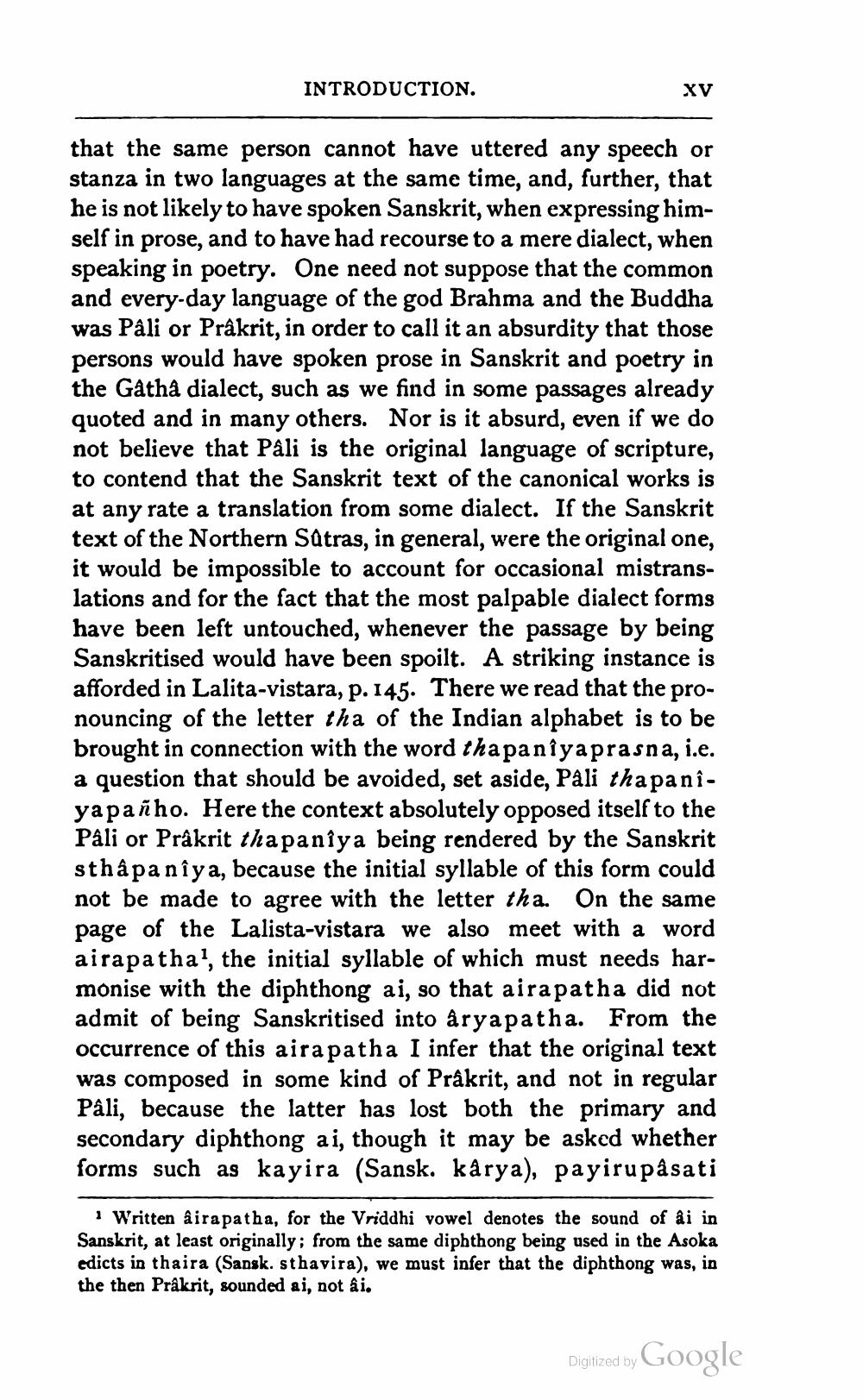________________
INTRODUCTION.
XV
that the same person cannot have uttered any speech or stanza in two languages at the same time, and, further, that he is not likely to have spoken Sanskrit, when expressing himself in prose, and to have had recourse to a mere dialect, when speaking in poetry. One need not suppose that the common and every-day language of the god Brahma and the Buddha was Pâli or Prakrit, in order to call it an absurdity that those persons would have spoken prose in Sanskrit and poetry in the Gatha dialect, such as we find in some passages already quoted and in many others. Nor is it absurd, even if we do not believe that Pali is the original language of scripture, to contend that the Sanskrit text of the canonical works is at any rate a translation from some dialect. If the Sanskrit text of the Northern Satras, in general, were the original one, it would be impossible to account for occasional mistranslations and for the fact that the most palpable dialect forms have been left untouched, whenever the passage by being Sanskritised would have been spoilt. A striking instance is afforded in Lalita-vistara, p. 145. There we read that the pronouncing of the letter tha of the Indian alphabet is to be brought in connection with the word thapaniyaprasna, i.e. a question that should be avoided, set aside, Pali thapaniyapanho. Here the context absolutely opposed itself to the Pali or Prakrit thapaniya being rendered by the Sanskrit sthapa niya, because the initial syllable of this form could not be made to agree with the letter tha. On the same page of the Lalista-vistara we also meet with a word airapatha', the initial syllable of which must needs harmonise with the diphthong ai, so that airapatha did not admit of being Sanskritised into aryapatha. From the occurrence of this aira patha I infer that the original text was composed in some kind of Prakrit, and not in regular Pali, because the latter has lost both the primary and secondary diphthong ai, though it may be asked whether forms such as kayira (Sansk. karya), payirupåsati
1 Written âirapatha, for the Vriddhi vowel denotes the sound of ai in Sanskrit, at least originally; from the same diphthong being used in the Asoka edicts in thaira (Sansk. sthavira), we must infer that the diphthong was, in the then Prakrit, sounded ai, not ai.
Digitized by Google




